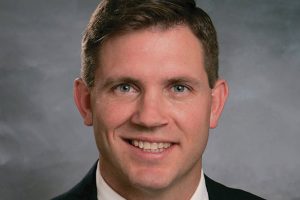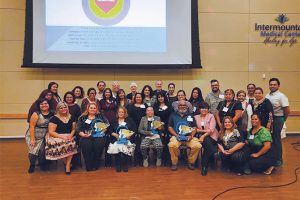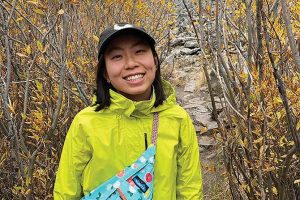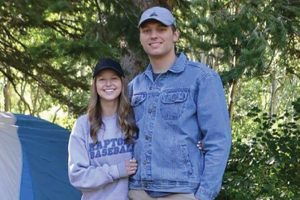By UAFP
Delegates
Alternate Delegates
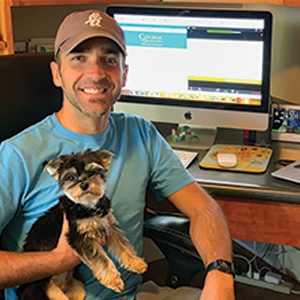
Jesse N. Spencer, M.D.
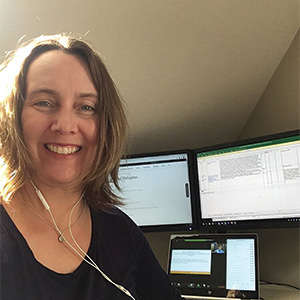
Kirsten Stoesser, M.D.,
FAAFP
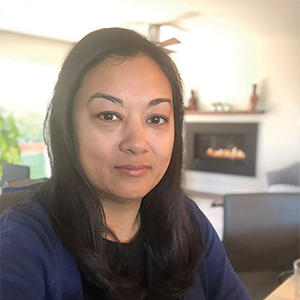
Saphu Pradhan, M.D.
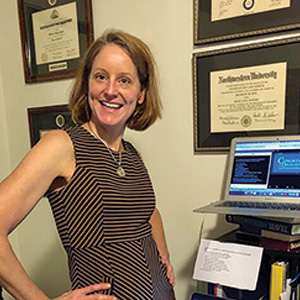
Sarah L. Woolsey, M.D.,
MPH, FAAFP
Originally scheduled to meet in Chicago, delegates and state chapter staff ended up safely joining the AAFP Congress of Delegates virtually this year. At each Congress of Delegates (COD), resolutions are presented by each state chapter, debated during reference committees, and voted on during general session meetings. Due to the virtual format, states were limited to submitting no more than two exigent resolutions each. Delegates also voted to elect the new leadership of AAFP.
Your 2020-2021 Delegates and Alternates:
Delegates
Jesse N. Spencer, M.D.
Kirsten Stoesser, M.D., FAAFP
Alternate Delegates
Saphu Pradhan, M.D.
Sarah L. Woolsey, M.D., MPH, FAAFP
Typically, Congress runs over four consecutive days, but due to the virtual format, Reference Committee sections were held on Oct. 3rd and 4th, a candidate Town Hall was held on Oct. 11th, and the official Congress Sessions on Oct. 12th and 13th.
The resolutions, proposed by state chapters, are discussed at reference committees, and delegates can speak in favor or opposition. A group of diverse physicians is chosen to sit on each Reference Committee (our own Dr. Sarah Woolsey is a member of the Practice Enhancement committee). They listen to the testimony and meet after the breakout sessions to make recommendations that will be presented to the entire Congress. Recommendations are used to direct the AAFP moving forward.
On Day One, two of the four committees met: Health of the Public and Science and Practice Enhancement. The UAFP brought a resolution to the COD that was presented in the Practice Enhancement reference committee. The UAFP resolution asked that the AAFP help physicians and pharmacies implement e-cancellation processes to improve patient safety when a medication is discontinued, decrease administrative burden often seen with prescription changes and decrease costs associated with refilling medications that were meant to be discontinued. Our resolution was one of the less divisive resolutions this year and received positive support from delegates.
Day Two brought the remaining two reference committee reports: Advocacy and Organization and Finance. Over 250 participants joined in on the Zoom call, including state academy delegates in family medicine and alternate delegates from all 50 states, plus representatives from Puerto Rico, Guam, the U.S. Virgin Islands, the U.S. Uniformed Services, the Resident Section, and the Medical Student Section.
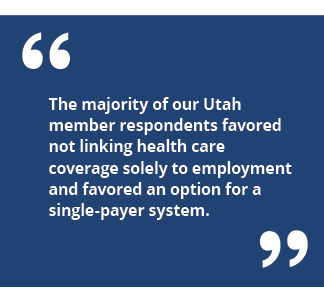
A new component this year was a survey we sent to our membership on a few key resolutions. It helped inform the delegates of our membership’s views and is extremely helpful during the debate as delegates share the Utah perspective during testimony.
The majority of our Utah member respondents favored not linking health care coverage solely to employment and favored an option for a single-payer system. The majority of our Utah members did not support the assertion that a universal health care system is the most optimal system. Concerns were expressed about the effectiveness of such a system. The Utah perspectives were relayed to the national caucus.
The Town Hall is typically a very social event where delegates mingle, have an opportunity to meet leadership candidates, and discuss Congress in general. Changing to a virtual format was a significant departure. It provided a more formal structure for presenting speeches by the Board Chair Dr. John Cullen, AAFP President Dr. Gary LeRoy, and President Elect Dr. Ada Stewart.
The first day of the Congress sessions began with delegates’ opportunity to hear from the president elect and candidates for the board of directors.
The recommendations from the Organization and Finance Committee were presented. After some debate, the COD voted against adopting the AMA Code of Ethics, deciding it was better to maintain the independent voice of AAFP to speak on behalf of family physicians and family medicine. The final day started with the remaining two reference committees: Health of the Public and Science and Advocacy. Resolutions regarding the development of an AAFP position paper on climate change and member education regarding older driver impairments were passed. Lively discussions were had on the importance of AAFP developing a comprehensive position paper on police violence.
In the Advocacy session, delegates dealt with the way that AAFP will discuss payment policy. The AAFP has done a great job addressing this in past years, and the Congress continues to ensure that health coverage for all is critical to seeing the advance in health that we desire.
Utah delegates were supportive of an AAFP policy to ask for the X Waiver to be removed for buprenorphine prescribing.
After the work was done, the final vote tally was announced for the next AAFP President Elect, Dr. Sterling Ransone, who will lead the AAFP in 2021-2022. Delegates also celebrated the installation of Dr. Ada Stewart as AAFP’s new president. She is a strong and amazing leader, and family physicians will be well represented under her leadership.
The AAFP Board asked for a special task force to evaluate the 2020 Virtual Congress of Delegates to see what worked and what did not. Our academy is committed to innovative ways to connect in any circumstance. Despite the typical technological hiccups, Congress ran smoothly, and the AAFP staff should be proud of presenting such a complex conference in a virtual format.
With another year behind us, your Utah delegation hopes members will see the value of UAFP’s participation in the Congress and consider running for a delegate position in the future. Attending the Congress is an incredible opportunity to meet with fellow physicians from around the country, even if only virtually. It is a critical opportunity to present resolutions of importance to the practice of family medicine in Utah.
UAFP
This story appears in Issue 2 2020 of the UAFP Journal.



